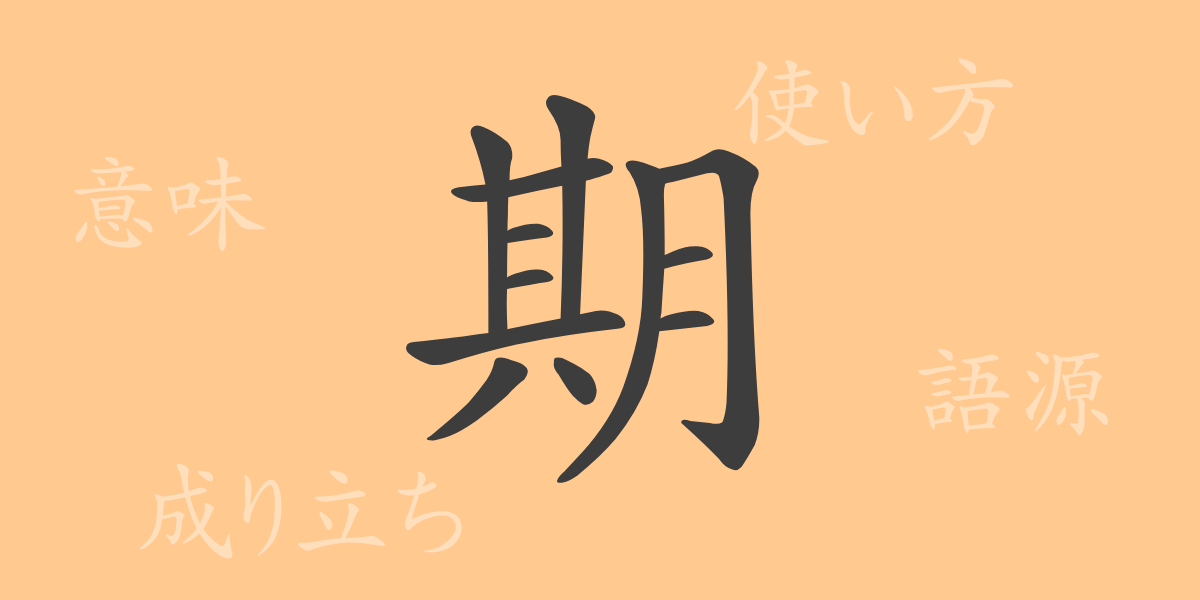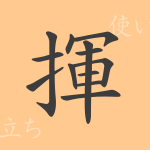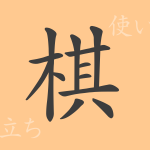Characters are like a magical existence that give shape to words. In the Japanese language, there is a set of characters known as “Jouyou Kanji” (常用漢字(Jouyou Kanji)), which are kanji used regularly in daily life, and among them is the kanji “期” (期(Ki)). This single character carries a deep meaning, representing the flow of time and moments that are promised. In this article, we will delve into the world of “期” (期(Ki)), exploring its origins, meanings, and usage.
The Origin (Etymology) of 期
The kanji “期” (期(Ki)) evolved from pictographic characters in ancient China. Originally, it depicted a mark used to represent the zodiac sign “干” (干(Kan)), and over time, it came to signify the concept of dividing time. As a concept representing time, “期” (期(Ki)) developed to mean the time of expectation or promise and continues to be used in many cultures to this day.
The Meaning and Usage of 期
The kanji “期” (期(Ki)) primarily denotes a “specific point in time” or a “promised moment”. It is also used with the nuance of waiting for a certain event to occur, as in “期待” (期待(Kitai)), which means to hope or expect. It is frequently used to express time-related concepts, such as in “期限” (期限(Kigen)) or “期日” (期日(Kijitsu)), which refer to deadlines or due dates.
Readings, Number of Strokes, and Radical of 期
The kanji “期” (期(Ki)) has various readings in Japanese.
- Readings: The on’yomi (Chinese reading) is “キ” (キ(Ki)), and the kun’yomi (Japanese reading) is “ご” (ご(Go)).
- Number of Strokes: “期” (期(Ki)) is a 12-stroke kanji.
- Radical: The radical is “月” (月(Tsuki)), which is also known as the meat-month radical.
Phrases, Idioms, and Proverbs Using 期 and Their Meanings
There are numerous idioms, phrases, and proverbs that include the kanji “期” (期(Ki)) in the Japanese language. For example, “期待” (期待(Kitai)) expresses the sentiment of anticipation, “期限” (期限(Kigen)) refers to the final moment of a deadline, and “学期” (学期(Gakki)) denotes the division of a school’s educational curriculum. Additionally, the proverb “期せずして” (期せずして(Kisezushite)) is used to mean something that happens unexpectedly.
Summary of 期
The meanings embedded in a single kanji character are profound, enriching the expressions of the Japanese language. The kanji “期” (期(Ki)) plays a crucial role in our lives by marking time, conveying concepts such as schedules, goals, and expectations. In this way, kanji characters that have been passed down from ancient times remain an indispensable element in modern Japanese.

























